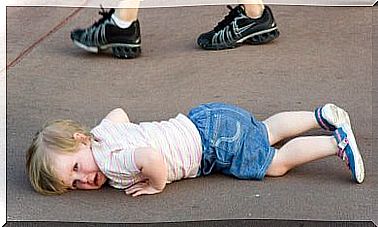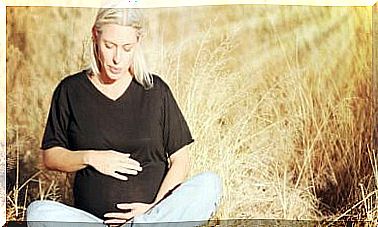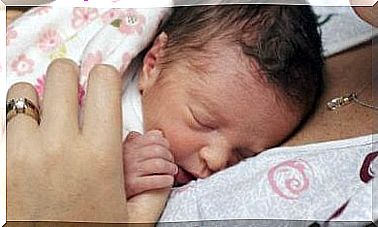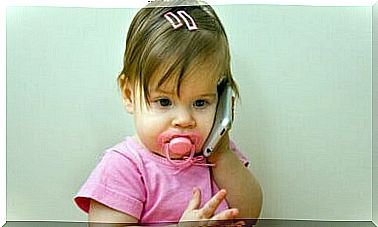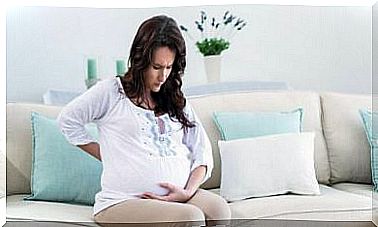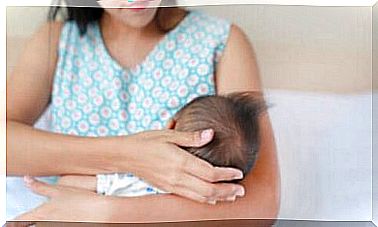My Baby Always Vomits After Eating – Parenthood
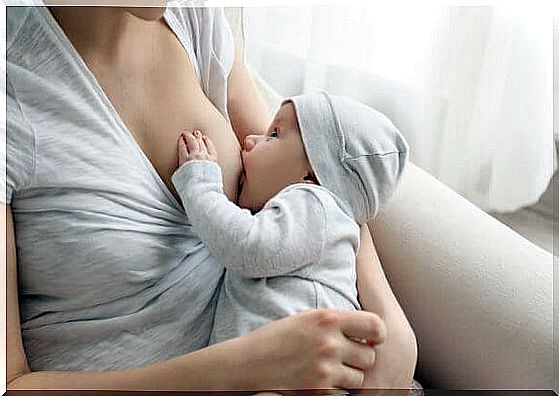
Occasionally, your baby may vomit after eating. This type of reaction to milk is quite common, especially up to the age of six months. However, if the reflux occurs continuously, something is wrong with his digestive system.
This should not be a reason for us to be alarmed. In fact, almost all of the clinical symptoms that follow this symptom are generally sporadic and treatable in pediatrics.
As parents, our first job will be to find the cause of the vomiting. This will determine the type of treatment or care we should offer our baby. Let’s see what are the reasons that generate this bodily reaction. Sometimes the problem lies in the way we feed it
In principle, all children vomit due to the poor development of their digestive system. Therefore, a bad posture or a bad diet leads to regurgitation. In this case, the right thing to do will be to change the shape of the diet.
Improper positioning of the baby during or after meals can cause reflux. In addition, a slight entry of air through the duct also causes this type of symptom. As a preventive measure, it is necessary to help the child to expel gases.
On the other hand, the excess of food and the constitution of food are also causes of returns. There are certain aspects to be very careful about, such as the size of the bottle, the thickness of the milk product formula and the quantity. It is also necessary to remember that it is not advisable to exceed the amount recommended for babies.

Allergies and congestion of the nostrils
Just as the entry of air has an impact, its absence can also cause vomiting. A child with a stuffy nose may regurgitate as a reflex that improves breathing. This often happens with young children with sinusitis.
Likewise, it can be due to allergies and intolerance to newborn milk. Lactose or the proteins of the milk in question would be the main culprits. If this is the case, it is strongly recommended to change the formula.
In addition to asking the doctor to prescribe new milk or drugs, we will also need to change the way we eat. Controlling the flow of food and distributing it in several intakes will be quite favorable.
In practice, if the child vomits after eating constantly and repetitively, he may suffer from an illness. This is considered primarily when the reaction continues to occur between 10 and 14 months.
Gastroesophageal reflux must be excluded
Gastroesophageal reflux disease is caused by the low maturity of the lower esophageal sphincter. It is a muscle that allows food to pass through the entire esophagus and into the stomach. By not functioning properly, food is regurgitated.
Usually this disorder is accompanied by other symptoms. If the child reflexes arching while eating on his back, his problem could be reflux. In addition, constant colic, cough, and weight loss are other signs to look out for.
Basically the solution is to create better conditions in the way the affected baby is fed. There are also diagnostic tests and treatments to lower the level of acid in the small esophagus.
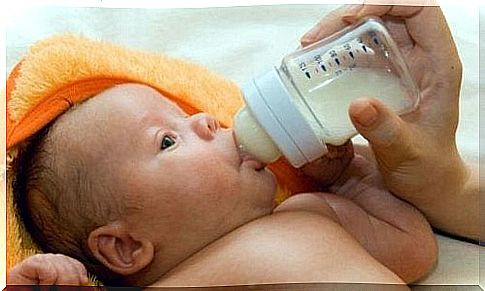
My baby is vomiting after eating: pyloric stenosis
Another important aspect to consider is that pyloric stenosis should not be confused with gastroesophageal reflux disease. In this case, the problem is the enlargement of the esophagus, which prompts the child to regurgitate the food.
The peculiarity of this pathology is that the child vomits in an interrupted way, “in small bursts”, and that his vomit is very acidic. It is only in the most serious cases that one can resort to a surgical intervention to correct this defect.
The good news is, even with both of these conditions, there is always a solution. It is really difficult to associate the recurrence of vomiting with a more serious condition; especially if the infant is less than six months old.
In summary, if our baby is vomiting after eating repeatedly, the first thing to do is observe. It should be noted that only the doctor can tell us the treatment to follow. Finally, improving the way they eat will help the little one a lot.
